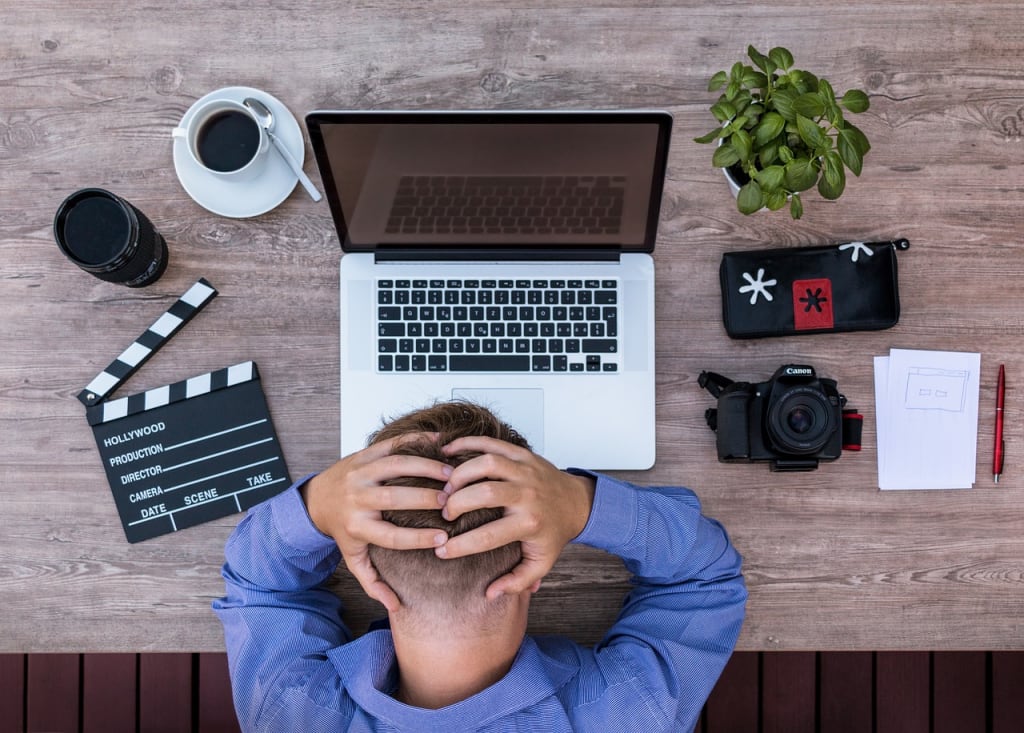
In today's digital age, it's easy to get lost in the world of screens. From smartphones to laptops, we spend a significant amount of time staring at screens.
While technology has made our lives easier in many ways, it's important to recognize the impact it can have on our mental health. Balancing screen time and mental well-being is crucial for maintaining a healthy lifestyle.
The Impact of Screen Time on Mental Health
Research has shown that excessive screen time can have negative effects on mental health. One study found that individuals who spent more time on their phones had poorer sleep quality and higher levels of anxiety and depression. Another study found that excessive screen time can lead to cognitive problems, such as difficulty concentrating and memory issues.
It's important to recognize the impact that screens can have on our mood as well. Social media, in particular, can contribute to feelings of loneliness and inadequacy. The constant comparison to others can lead to negative self-talk and a decrease in self-esteem.
Recognizing the Signs of Burnout
Burnout is a state of emotional, physical, and mental exhaustion caused by prolonged stress. It's important to recognize the signs of burnout, as it can have a significant impact on mental health. Common signs of burnout include feeling exhausted, irritable, and overwhelmed. It can also lead to physical symptoms, such as headaches and stomach problems.
Screen time can contribute to burnout by increasing stress levels. Constant notifications and the pressure to always be connected can lead to feelings of overwhelm and exhaustion. It's important to recognize when screen time is contributing to burnout and take steps to reduce it.
The Importance of Setting Boundaries with Technology
Setting boundaries with technology is crucial for maintaining a healthy balance. Tips for setting boundaries include turning off notifications, setting specific times for checking email and social media, and avoiding screens before bed. By setting boundaries, individuals can reduce stress levels and improve mental well-being.
Limiting screen time also has numerous benefits. It can lead to better sleep quality, improved mood, and increased productivity. By setting boundaries with technology, individuals can improve their overall quality of life.
Mindfulness Techniques for Reducing Screen Time
Mindfulness exercises can be helpful in reducing screen time. Techniques such as deep breathing and meditation can help individuals become more aware of their screen time habits. By being mindful of their screen time, individuals can make more intentional choices about when and how they use technology.
Mindfulness also has numerous benefits for mental health. It can reduce stress levels, improve mood, and increase self-awareness. By incorporating mindfulness into their daily routine, individuals can improve their overall well-being.
The Benefits of Disconnecting from Technology
Taking breaks from technology can have numerous benefits for mental health. It allows individuals to recharge and reduce stress levels. Tips for disconnecting from technology include taking a digital detox, spending time in nature, and engaging in activities that don't involve screens.
Disconnecting from technology can also lead to increased creativity and improved relationships. By taking a break from screens, individuals can focus on other aspects of their life and improve their overall well-being.
Strategies for Balancing Work and Personal Screen Time
Balancing work and personal screen time can be challenging. Tips for balancing screen time include setting specific times for work and personal use, prioritizing tasks, and avoiding multitasking. It's important to set priorities and make intentional choices about how screen time is used.
By balancing work and personal screen time, individuals can reduce stress levels and improve their overall well-being. It allows for a better work-life balance and can lead to increased productivity.
The Role of Social Media in Mental Health
Social media can have both positive and negative impacts on mental health. On one hand, it can provide a sense of connection and support. On the other hand, it can contribute to feelings of loneliness and inadequacy. It's important to use social media in a healthy way and recognize when it's contributing to negative feelings.
Tips for using social media in a healthy way include limiting time spent on social media, unfollowing accounts that contribute to negative feelings, and focusing on positive interactions. By using social media in a healthy way, individuals can improve their overall well-being.
Incorporating Self-Care into Your Daily Routine
Self-care is crucial for maintaining mental well-being. Tips for incorporating self-care into your daily routine include engaging in activities that bring joy, practicing gratitude, and prioritizing rest. By prioritizing self-care, individuals can reduce stress levels and improve their overall well-being.
The Connection Between Physical Activity and Mental Well-being
Physical activity has numerous benefits for mental health. It can reduce stress levels, improve mood, and increase self-esteem. Tips for incorporating physical activity into a routine include finding activities that are enjoyable, setting achievable goals, and making it a priority.
By incorporating physical activity into a routine, individuals can improve their overall well-being and reduce the negative effects of screen time.
Seeking Professional Help for Burnout and Mental Health Concerns
It's important to recognize when professional help is needed for burnout and mental health concerns. Types of professionals who can help include therapists, counselors, and psychiatrists. It's important to prioritize mental health and seek help when needed.
Find Harmony
Balancing screen time and mental well-being is crucial for maintaining a healthy lifestyle. By recognizing the negative effects of excessive screen time, setting boundaries with technology, and incorporating self-care and physical activity into a routine, individuals can improve their overall well-being.
It's important to prioritize mental health and seek professional help when needed. By making intentional choices about screen time, individuals can improve their quality of life and achieve a better work-life balance.
About the Creator
Gary Cook
I love writing! My goal is to share my knowledge with you.
Follow me to read about health & well-being, sport & fitness, positivity & motivation, food & nutrition, travel, parenting & family and more.






Comments
There are no comments for this story
Be the first to respond and start the conversation.